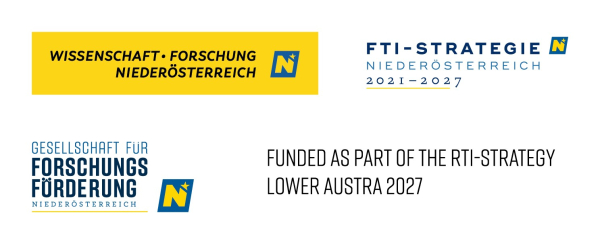Socio-sPatial framework conditions for inclusive housing for persons with complex mental health needs in rURal and small-town areas
Background
A growing body of research supports the idea that natural as well as built environments affect mental health and people's individual recovery. This implies that adjusting environmental settings to the needs of people struggling with complex mental health problems can profoundly contribute to their well-being. Addressing the effects of socio-spatial framework conditions on the lives of people with mental health issues demands research that considers the diversity of regional contexts and social service provisions. In Austria and its neighbouring regions, we find an abundance of different collaborative living arrangements that aim for the inclusion of the elderly, people with disabilities, asylum seekers, refugees, and people with a background of (forced) migration. However, few projects target the inclusion of persons with complex mental health needs.
Project Content
Three Lower Austrian universities (DUK, BSU, FHSP) with an expertise pertinent to the research topic of the SPUR project (i.e., transformation of policies and services for people with disabilities, alternative organisational and enterprise models, social work, inclusion and participatory processes, spatial planning and poverty alleviation) team up with PSZ gGmbH (a local non-profit service provider for persons with complex mental health needs). Together they investigate which socio-spatial framework conditions allow for self-determined living and social inclusion of persons with complex mental health needs in rural and small-town areas of Lower Austria. SPUR applies a variety of qualitative research methods to identify structural factors that influence the situation and the coping capacities of people with complex mental health conditions. Great emphasis is placed on examining framework conditions relevant for the success of collaborative housing projects. This includes taking a close look at the diverse regional contexts and the different structures of the institutional social service providers.
Goals
The project's main objectives are as follows:
- To compile and map pertinent socio-spatial information on health care/supply systems, population flows and demographics, housing costs/market provisions, and local civic engagement in Lower Austria's rural and semi-rural districts.
- to learn about people’s current living arrangements, their personal housing histories (biographical data) and needs for housing and recovery by conducting interviews and using photo voice.
- to study and analyse collaborative housing projects with a focus on resident and stakeholder participation and social cohesion (considering specific housing and care arrangements, transfer services, support systems, etc.).
- to identify what is required to provide inclusive housing for people with complex mental health needs in Lower Austria's rural and small-town areas.
- and translate all findings and insights into very concrete scenarios for inclusive housing projects.
Methods
SPUR employs a range of qualitative and participatory research techniques to identify the sociospatial factors that influence the onset, progression, and recovery of mental illness. Excursions are undertaken to places where collaborative housing initiatives have been established. This aids in learning more about how care- and living arrangements look in practise and provides the cornerstone for implementing inclusive housing projects in semi-rural and rural regions of Lower Austria. A stakeholder process forms SPUR’s backbone: With citizen scientists at its centre, this process engages persons with complex mental health needs (and their family/ relatives) as well as a number of target groups such as local community representatives, mayors, administrators, housing cooperatives, etc. Throughout the project, stakeholder provide feedback and contribute to the research. Their engagement follows a transdisciplinary scenario planning approach that identifies hindering and supporting conditions for inclusive living arrangements, develops visions for future arrangements and potentially prepares their operationalization.
The research involves people who have experienced and lived through mental illnesses. These co-researchers are referred to as Core Citizen Scientists. Also, interested citizens (i.e., Citizen Scientists) are asked to contribute at specific stages of the research process. People who are directly and indirectly (e.g., relatives) affected by mental health problems, employees of social and medical services, other experts and stakeholders from local communities, politics, administration and non-profit housing make up this second category of co-researchers. PSZ gGmbh participates in the entire research process.
Results
SPUR identifies the spatial framework conditions for inclusive housing for people with complex mental health needs in rural and small-town settings. By examining hitherto unstudied social inclusion features of people with mental health issues as residents and stakeholders of such housing arrangements, it also enhances the state-of-the-art research in the field of collaborative housing. SPUR makes an impact on the:
- Individual level by providing more clarity what housing means to people with complex mental needs and what is necessary to better adapt housing arrangements to their requirements.
- Organizational level because social service providers can enhance their support and care concepts. This will improve the quality of life for persons with complex health needs, serve as a step toward de-stigmatization, and as a result benefit their recovery processes.
- Regional level as it sensitizes policymakers, housing developers, social care and civil society organisations to the housing requirements for people with complex mental health needs. The project helps rural stakeholders to better understand their roles in instigating the transition towards more inclusive housing and care structures.
- Socio-political level because stakeholders and practitioner experts are involved in the SPUR research process. In addition, target audiences and the interested public are regularly informed through different outreach channels.
You want to know more? Feel free to ask!
Department of Social Sciences
Oliver König (BSU)
Richard Lang (BSU)
Christopher Tupy (Erfahrungsexperte, Co-Forscher UWK)
Tim Brunöhler (Projektmitarbeiter BSU)
Henriette Gschwendtner (Erfahrungsexpertin, Co-Forscherin BSU)
Elisabeth Gundendorfer (Kooperationspartnerin aus Psychosoziale Zentren gGmbH)
David Neugschwentner (Erfahrungsexperte, Co-Forscher)
- UWK Universität für Weiterbildung Krems (lead)
- Bertha von Suttner Privatuniversität
- Psychosoziale Zentren gGmbH



